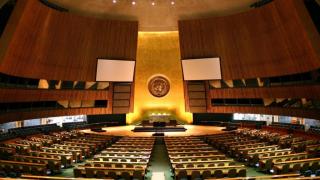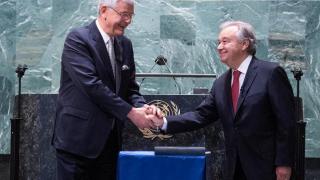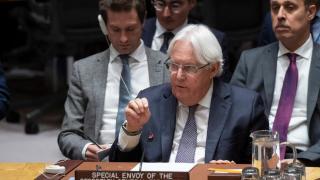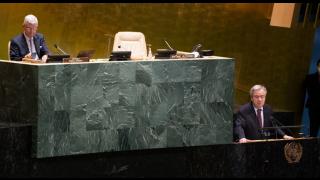
UK citizens bear some responsibility for the success or failure of the UN politically, UNA-UK's Peace and Security Programmes Officer told BBC Radio Scotland during discussions about the UN's 70th birthday at the weekend.
Speaking on Good Morning Scotland, Alexandra Buskie argued that "member states are only as active, progressive and determined as our governments are and our governments are accountable to us", adding that we needed to "demand that our governments to do more to invest in the UN politically".
Julian Borger, Diplomatic Editor of the Guardian, also took part in the show argued in favour of reforming the Security Council to make it more representative of the power balance of today's world. However, he added that this was unlikely to happen since such a reform would be like "turkey's voting for Christmas" because the existing permanent members of the Security Council would need to dilute their power if the structure was changed.
Alexandra pointed to one potential reform that had a greater chance of success: improving the transparency of the selection process of the next Secretary-General. She argued that while the Secretary-General was going to be constrained by politics, the position has a strong influence on the day-to-day work of the UN. She added that,
...it sounds really basic to want to improve this process but this person is like the CEO of the UN. A strong leader who is able to communicate of the message of the UN powerfully and clearly will make a difference to the way the general public views the UN and views their place in the UN.
Listen to Alexandra's interview on BBC Radio Scotland (begins at 38 minutes).






